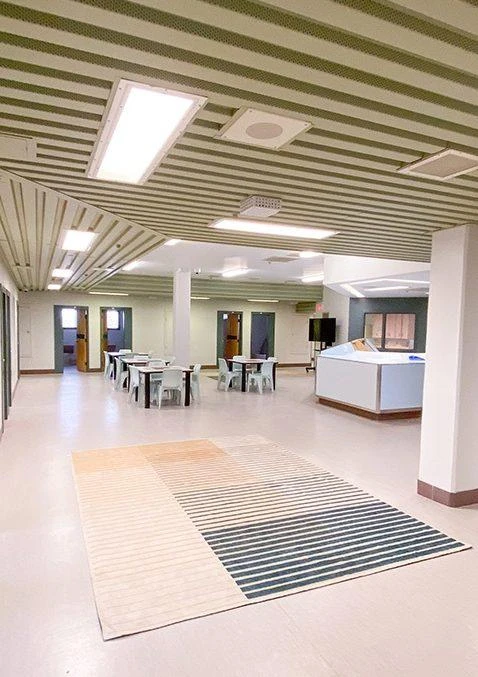
These programs are crucial for those in remand centres or awaiting sentencing, providing support that begins prior to release and continues as members transition back into the community.
Key components of our TS Programs include:
- Comprehensive Transition Planning: Personalized plans that cover everything from housing to continuing treatment.
- Relapse Prevention and Continuous Support: Aftercare support services to ensure sustained recovery and stability.

Transitional Service Programs
The primary objective of the TS program is to provide a smooth and supported pathway for candidates transitioning from incarceration to a TLU or other intensive treatment, such as a recovery community or preparing to re-enter society.
This process involves comprehensive planning that addresses each candidate’s unique needs, potential challenges, and personal goals. Our approach ensures that upon release, individuals are not only prepared to face the demands of daily life outside the correctional facility but are also equipped with tools and strategies to maintain recovery and avoid re-offending.
Transitional Service Programs
Comprehensive Transition Planning
TS programs engage candidates in the development of personalized transition plans. These plans are comprehensive and cover critical aspects such as:
- Arrangements for continued mental health and recovery-oriented treatments
- Identification of community resources for ongoing support
- Assistance in securing stable housing and gainful employment
- Collaborative planning with case managers, therapists, and community liaisons to ensure all aspects of the candidate’s needs are addressed
Relapse Prevention Planning
A crucial component of TS programs is educating candidates on how to manage triggers and cravings effectively. This involves:
- Motivational interviewing to help members recognize triggers in the community
- Establishing access to ongoing support groups and therapy sessions to maintain sobriety and mental health stability
Facilitating Reintegration
In transitional service (TS) programs, staff play a pivotal role as conduits to the broader spectrum of services available in Alberta.
They are instrumental in ensuring that transitioning candidates have seamless access to the support and resources necessary for their reintegration into society.
By providing "warm hand-offs" and assertive linkages, TS staff ensure that each individual is not only prepared for re-entry but is also connected to a supportive recovery network that will aid in their long-term success.
The concept of a "warm hand-off"
is critical to TS programs.
This process involves a direct, personal introduction or referral from TS staff to other service providers, ensuring that candidates do not face the challenge of navigating the complex landscape of recovery and support services on their own.
Key aspects of these linkages include:
-
Connection to Recovery Communities and TLUs
TS staff facilitate referrals to all four therapeutic living units and recovery communities, ensuring candidates can transition into environments that support continued recovery.
This is particularly important for candidates who need sustained structure and support to maintain sobriety and continue personal development.
-
Linkages to Recovery Coaching
Recovery coaching is an essential part of the continuum of care, providing individuals with guidance, accountability, and motivation.
TS staff connect candidates with certified recovery coaches who assist them in setting recovery goals, developing resilience, and navigating the challenges of reintegration.
-
Access to Continuing Care
Ensuring continuity of care is a priority. TS staff arrange for candidates to receive ongoing counselling, mental health services, and substance use treatment post-release.
These services are crucial for managing health needs that were addressed during incarceration and require continued attention.